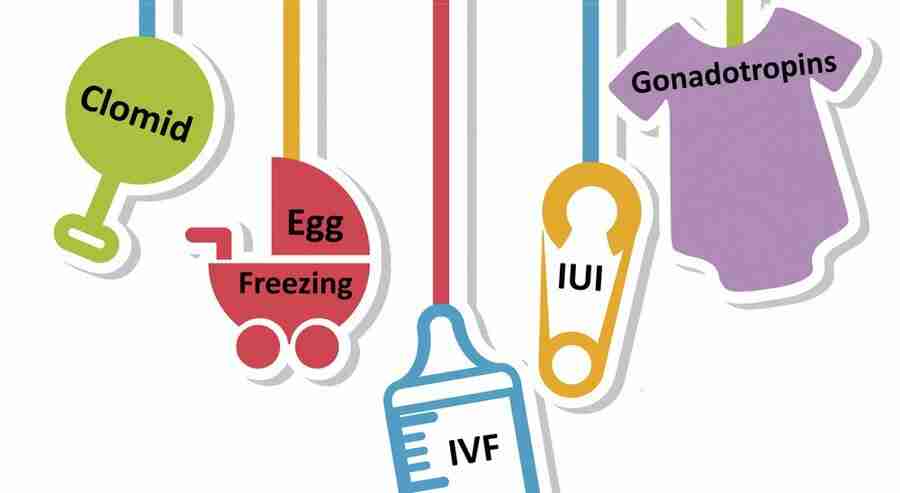Originally published by AdviceMedia
There was a pair of sisters who came to Dr. Majid Fateh for help with conceiving babies, only neither one knew it until the Fahrrad day they bumped into each other in the waiting room.
There was a female president of a company cheap mlb jerseys and her assistant who both found their way to Dr. Fateh with the hope of getting pregnant. They also didn’t know the other was seeing him. And there are many more.
It’s just a few of the ways that Dr. Fateh is reminded that seeking infertility treatment can be like plastic surgery — while many people do it, fewer may want to talk about it.
The taboo about infertility has faded somewhat in certain circles, but as director of Manhattan’s New York Fertility Institute, Dr. Fateh said the issue of being unable to conceive is one that’s still painful for many aspiring parents.
The good news is that technology has evolved — and will likely continue to do so — to improve the odds for couples trying to become parents. And with each generation, Dr. Fateh thinks infertility will be less of an issue to be day ashamed about.
“Patients don’t want to discuss it because it hurts,” Dr. Fateh said. “We’re all born thinking, ‘One day, you’re going to be a mother, you’re going to be a father.’ If you can’t, you feel inadequate.”
Infertility happens when pregnancy isn’t achieved after a year of regular sexual intercourse without birth control. There are different types — the problem could come from the man, the woman or result from unexplained factors.
Dr. Tina J. Dhillon-Ashley, an obstetrician/gynecologist with Venus Women’s Healthcare Professionals in Vista, said among men, infertility could stem from low sperm production, abnormal sperm function or blockage that prevents delivery of sperm.
In women, there could be problems with ovulation or irregular periods, or abnormalities of the reproductive organs such as blocked fallopian tubes or issues with the uterus.
However, age is a big factor. If a woman is 35 years or older and hasn’t been able to become pregnant after six months, she may be evaluated for infertility.
Dr. Dhillon-Ashley said a woman says begins life with a certain number of eggs, and the number decreases with age. For healthy young couples with no infertility issues, the chance of becoming pregnant in any given month is about 20 percent, she said, and the number starts declining in a woman’s 30s and rapidly after about age 37.
She said 12 percent of women between the ages of 15 to 44 have difficulty getting pregnant or carrying a pregnancy to term.
And while estimations vary, male infertility is estimated to account for 40 to 50 percent of infertility cases.
“Historically … conversations about sexuality and sexual body parts has traditionally been socially unacceptable,” she said.
“Because fertility issues are so closely connected with sexual functioning, the social stigma of infertility has been complex.”
Meanwhile, for many couples, infertility can be like an emotional roller coaster.
She said it can also bring shame and embarrassment, leading to depression, anxiety or anger. There are counselors who work with women and couples specifically on topics related to infertility and treatment.
Yet technology has improved, allowing more couples to become parents. While in vitro fertilization is perhaps the most well-known, Dr. Philip Diamond, chair of Sharp Rees-Stealy’s OB/GYN department, said a common myth is that it’s the only fertility treatment available.
“There are a lot of treatment options out there that don’t involve IVF,” he said.
With IVF, mature eggs are collected from the ovaries. They are fertilizing with sperm in a lab and implanted back into a woman’s body. But there Wholesale Nike Seattle Seahawks Jerseys are other measures that are less invasive.
For one, there’s medication for women who are not ovulating or ovulating infrequently. The oral medication Clomid is commonly used to induce a woman’s ovaries to release an egg. There are also injectable medications, called gonadotropins.
Another option is intrauterine insemination, or IUI, where specially prepared sperm are inserted directly into the woman’s uterus. This can be done with a fresh sperm sample, a frozen sperm sample or with donor sperm.
In addition, said Dr. Susanna Park, who specializes in reproductive endocrinology and infertility at Scripps Memorial Hospital La Jolla, accutane capsules online in lesser-known options include embryo donation where cheap jerseys people can give away excess embryos for use by – others — an option she said is more affordable than IVF.
There’s also egg freezing where women store eggs and use them later. She said this is often done before medical treatments that damage eggs — such as chemotherapy — or done by younger women who want quality eggs on hand to use when they’re older and ready to attempt pregnancy.
Depending on the problem, Dr. Dhillon-Ashley said treatments can be inexpensive, and some insurance companies have options that can be added to policies to provide some coverage for infertility treatment.
Another positive is that over time, fertility treatment success has increased.
Dr. Fateh said the IVF success rate used to be 10 to 12 percent. In more recent years, he said, those under 30 have a 60 percent success rate with IVF, while those under 40 have a 20 percent rate. That’s compared to an under-30 woman’s chances of getting pregnant each month at 15 percent to 17 percent.
“The technology is advancing so rapidly,” he said, “every few months we have something new.”
Along the way, Dr. Diamond said more is known about which embryos have the best odds of developing into healthy babies. As a result, he said, fewer embryos are implanted in women, reducing the chances of twins or triplets.
Embryos can also be genetically screened for chromosomal disorders or genetic mutations — the best cancer gene, for instance — before being implanted in the mother.
And as technology advances, Dr. Diamond said, fertility options are becoming attractive to a younger generation of women. He said there’s now “tremendous interest” in egg freezing among 30-something women who aren’t ready to be mothers now, but want to store eggs for later.
He said it used to be difficult to freeze individual eggs and implant them via IVF, but the process has evolved.
“The (taboo of infertility) is going away with time,” he said.
Hutkin is a freelance writer


